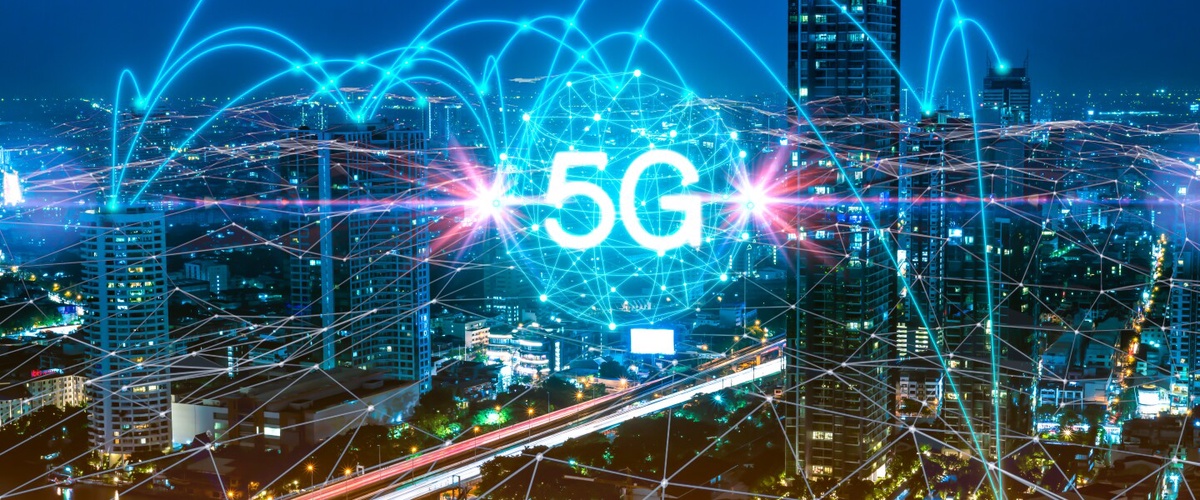In today's digital age, where connectivity is king, the advent of 5G networks has taken the world by storm. As the fifth generation of wireless technology, 5G promises lightning-fast speeds, low latency, and the potential to revolutionize the way we connect, communicate, and conduct business. However, like any technological innovation, 5G networks come with their fair share of advantages and disadvantages. In this blog, we'll delve deep into the pros and cons of 5G networks to provide you with a comprehensive understanding of this groundbreaking technology.

The Pros of 5G Networks:
Blazing Fast Speeds:
With 5G, you can kiss goodbye to frustratingly slow downloads and buffering videos. This network offers speeds that are significantly faster than its predecessors, allowing for quick downloads, smooth streaming, and near-instant loading of web pages. This speed boost is a game-changer for content consumption and productivity.
Low Latency:
5G's low latency, often referred to as the time it takes for data to travel between devices, opens up possibilities for real-time applications. Gamers, for instance, can enjoy lag-free gaming experiences, while industries like healthcare can explore remote surgeries and telemedicine with increased precision.
Enhanced Connectivity:
5G networks can support a vast number of devices simultaneously. This is crucial in an era where the Internet of Things (IoT) is rapidly growing. Smart homes, autonomous vehicles, and industrial automation systems can seamlessly communicate and operate, thanks to 5G's robust connectivity.
Revolutionizing Industries:
5G has the potential to transform various industries. For instance, in manufacturing, it enables the use of augmented reality (AR) for remote troubleshooting and maintenance. In agriculture, precision farming can benefit from real-time data analytics. The possibilities are endless.
Improved Mobile Experience:
Mobile users will enjoy a smoother and more immersive experience with 5G. Video calls will be crystal clear, and mobile applications will be more responsive, making our daily digital interactions more enjoyable and efficient.
Economic Growth:
The rollout of 5G networks is expected to stimulate economic growth by fostering innovation and creating job opportunities. As industries adapt to this technology, new businesses and services are likely to emerge.
Global Connectivity:
5G has the potential to bridge the digital divide by providing high-speed internet access to remote and underserved areas. This can lead to improved education, healthcare, and economic opportunities for communities worldwide.
The Cons of 5G Networks:
Infrastructure Costs:
One of the significant challenges in deploying 5G networks is the cost associated with building the necessary infrastructure. This includes installing countless small cell towers and upgrading existing infrastructure to support the new technology.
Limited Coverage:
While 5G networks are expanding rapidly, they are still far from ubiquitous. Rural and remote areas may have limited access to 5G, leaving some communities with outdated technology.
Device Compatibility:
To experience the benefits of 5G, users need compatible devices. This can be a costly investment, and not everyone can afford the latest 5G-enabled smartphones or tablets.
Interference and Range:
5G signals have a shorter range compared to 4G. Additionally, they can be more easily obstructed by obstacles like buildings and trees. This can lead to inconsistent coverage in some urban areas.
Health Concerns:
There have been concerns about the potential health effects of 5G radiation. While scientific studies have not conclusively proven any harmful effects, the debate continues, and more research is needed.
Security Risks:
The increased connectivity of 5G networks can potentially create new avenues for cyberattacks and data breaches. Protecting the security and privacy of data transmitted over 5G networks is a significant challenge.
Energy Consumption:
5G infrastructure requires a considerable amount of energy to operate, potentially contributing to increased energy consumption and its associated environmental impact.
Cost to Consumers:
Although 5G offers significant advantages, it may come at a higher cost to consumers compared to previous generations of wireless technology. Faster speeds and advanced features often mean higher monthly bills.
In conclusion, 5G networks hold immense promise for transforming the way we live, work, and connect. Their lightning-fast speeds, low latency, and capacity to support a vast number of devices make them a technology to watch. However, they also come with challenges, including infrastructure costs, limited coverage, and potential health and security concerns.
As the rollout of 5G networks continues worldwide, it is essential to strike a balance between harnessing the benefits and addressing the drawbacks. As with any technological advancement, careful planning, investment, and research are key to ensuring that 5G networks become a positive force for our increasingly connected world. With time and innovation, many of the cons can be mitigated, making 5G networks a game-changer with the potential to reshape our digital landscape.


No comments yet